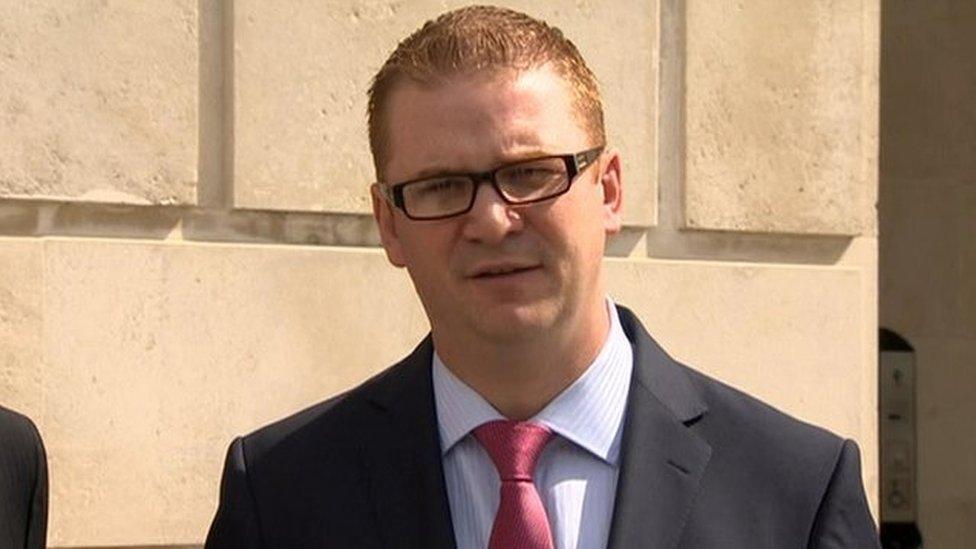Abortion: Woman who terminated two pregnancies drops challenge over guidelines
- Published

Northern Ireland's abortion law is different from the rest of the UK
A County Antrim woman who had two pregnancies terminated has ended her legal challenge against Northern Ireland's Department of Health.
She had sought a judicial review over the alleged failure to issue new guidance on abortion to medical professionals in Northern Ireland
She claimed the delay compounded the trauma of losing her babies.
But on Friday, her lawyers said her goal had been reached as guidelines have now been published.
Northern Ireland's abortion law differs from the rest of the UK and access to termination is more restricted.
Abortion is only permitted in Northern Ireland if a woman's life is at risk or there is a permanent or serious risk to her mental or physical health.
The woman who took the case wished to remain anonymous. In 2013, she had to travel to a clinic in England to terminate twins with fatal foetal abnormalities.
Staff at a Belfast hospital believed they were unable to carry out the abortion due to uncertainty around the law, according to papers in the case.
Last year, she discovered that a second pregnancy was non-viable. On that occasion, however, she was able to have an abortion at another hospital in Belfast.
Consultants decided that continuing with the pregnancy could have serious consequences for her mental health.
In her challenge, she claimed there was a legitimate expectation that the guidelines would be published in final form.
But on Friday, her barrister indicated that the publication of the guidance meant she had secured the relief sought.
Her lawyers are now pursuing the costs of her challenge.
The long-awaited guidelines are aimed at providing clarification for medical staff on when a termination is legal.
The lack of clarity on the issue has been a sticking point for decades, and clinicians have expressed fear that they could face prosecution for carrying out abortions, based on their interpretation of a permanent or serious risk to woman's mental or physical health.
The publication of the latest set of abortion guidelines follows years of talks between the Department of Health, the Department of Justice and senior clinicians.
It also comes after a series of legal challenges against the current law and a high-profile but unsuccessful campaign to legalise abortion in cases of fatal foetal abnormality.
- Published26 March 2016

- Published25 March 2016

- Published3 March 2016

- Published11 February 2016

- Published9 February 2016
